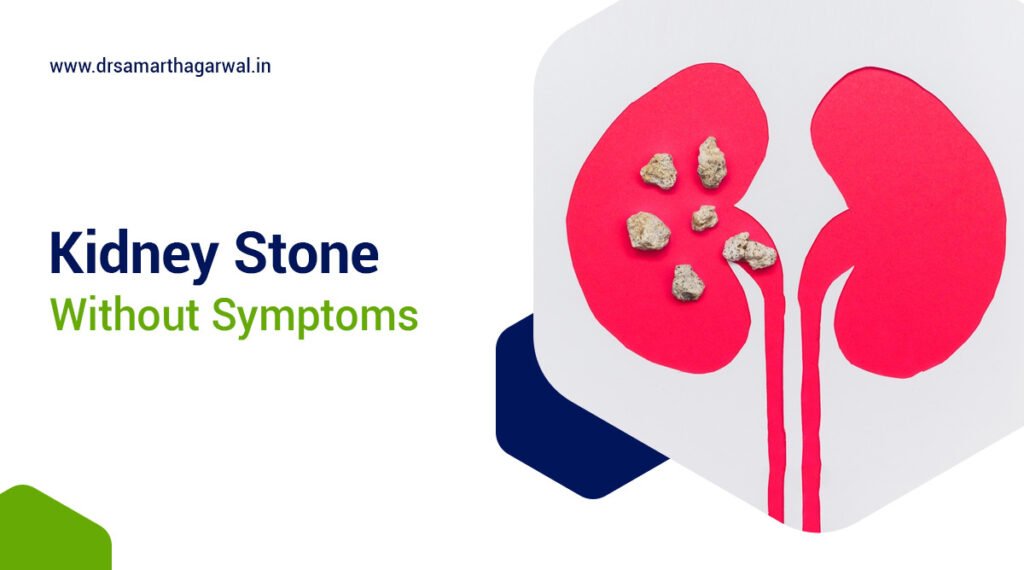Experiencing painful urination accompanied by blood, known as hematuria, can be alarming and uncomfortable. This condition may indicate underlying health issues such as kidney disease or bladder cancer that require attention.
Understanding the common causes, such as urinary tract infections (UTIs), sexually transmitted infections (STIs), and kidney stones, is crucial for addressing the problem effectively. These conditions often require a thorough medical history and physical examination for proper diagnosis.
This article explores the symptoms, diagnostic methods, including blood tests and urine samples, and treatment options available to help navigate this unsettling experience.
By the end, you’ll have a clearer understanding of what to expect and how to seek relief.
What Is Painful Urination With Blood?
Painful urination with blood, also known as hematuria, is a concerning symptom that indicates potential issues within the urinary tract, such as infection or kidney disease. It can manifest as blood in urine or blood in pee, which may arise due to various medical conditions affecting the urinary system. When someone experiences painful urination accompanied by blood, it is essential to seek urgent help from an urologist to identify the underlying cause and initiate appropriate treatment promptly. Ignoring these symptoms can lead to complications, including kidney stones, urinary tract infections, or even bladder cancer, necessitating a thorough examination by a healthcare professional like Dr. Samarth Agarwal.
What Are The Common Causes Of Painful Urination With Blood?
Understanding the common causes of painful urination with blood is crucial for effective diagnosis and treatment, whether through the NHS or private healthcare providers. Various factors can lead to this distressing symptom, including urinary tract infections (UTIs), which are often accompanied by severe pain and discomfort. Additionally, kidney stones may cause significant pain while also resulting in blood in urine. Other potential causes include problems related to the prostate in men, and in more severe cases, bladder cancer. Each of these conditions requires careful evaluation by a healthcare provider to determine the appropriate course of action.
Urinary Tract Infection (UTI)
A urinary tract infection (UTI) is a prevalent cause of painful urination with blood and can lead to significant discomfort and the presence of blood in urine.
Symptoms often include a burning sensation during urination, frequent urges to urinate, and lower abdominal pain, which can be extremely distressing and may require medications or even surgery. Plus these, some individuals may also experience cloudy or strong-smelling urine and even fever in severe cases.
Certain risk factors can increase susceptibility to these infections, such as dehydration, improper hygiene practices, and sexual activity. It’s crucial to maintain hydration and good hygiene, as they can be key preventive measures against dehydration, which can exacerbate symptoms.
- Antibiotics are the primary treatment for UTIs, effectively targeting the bacteria causing the infection.
- Completing the entire prescribed antibiotic course is essential to prevent recurrence.
- Doctors may recommend additional measures, including cranberry products or probiotics, though these should complement medical advice rather than replace it.
By focusing on proactive management and awareness of UTI symptoms, individuals can significantly reduce their risk and see blood in urine as a sign to seek timely care when needed.
Sexually Transmitted Infections (STIs)
Sexually transmitted infections (STIs) can also be a significant cause of painful urination with blood, resulting in symptoms that require prompt medical attention. Common STIs like chlamydia and gonorrhea may lead to inflammation of the urinary tract, causing painful urination and potential bleeding.
Plus these, other infections such as trichomoniasis and herpes can also contribute to uncomfortable urinary sensations. Recognizing the symptoms early, which may include a burning sensation during urination, unusual discharge, or persistent itching, is crucial for effective treatment.
Healthcare providers play a vital role in diagnosing these conditions through various testing methods such as urine samples or swabs. Once diagnosed, treatment options commonly include antibiotics, which are essential not only for alleviating symptoms but also for preventing further complications.
- Chlamydia: Often treated effectively with azithromycin or doxycycline.
- Gonorrhea: Typically managed with a regimen of ceftriaxone and azithromycin.
- Trichomoniasis: Metronidazole is a common treatment choice.
Contacting a healthcare professional at the first sign of discomfort can ensure clear guidance and support, ultimately aiding in recovery while safeguarding overall health, especially if there is a family history of related conditions.
Kidney Stones
Kidney stones are hard deposits formed in the kidneys that can cause severe pain and lead to blood in urine when they obstruct the urinary tract. The intense pain, often described as cramping and sharp, may be accompanied by nausea and difficulty urinating.
These stones develop when substances such as calcium, oxalate, and uric acid become concentrated in urine, particularly when dehydration occurs. Several factors can contribute to this painful condition, including dietary choices, lack of hydration, and specific medical conditions.
- Symptoms may also include:
- Frequent urination
- Cloudy or foul-smelling urine
- Persistent discomfort in the back or lower abdomen
For those experiencing these symptoms, it is critical to seek medical advice.
Treatment options vary based on the size and type of stones, ranging from increased fluid intake and pain management to surgical interventions if stones are too large to pass naturally. Preventive measures, such as maintaining adequate hydration by drinking plenty of fluids and adjusting dietary habits, can significantly help reduce the risk of recurrence, especially in those with a family history of kidney stones.
Enlarged Prostate
An enlarged prostate, a common condition as men age, can lead to painful urination with blood due to pressure on the urinary tract. This condition often results in symptoms such as frequent urination, difficulty starting urination, and, in some cases, blood in pee.
This condition primarily affects older males, arising from hormonal changes and the natural growth of prostate tissue. When the prostate enlarges, it compresses the urethra, leading to various urinary issues. Understandably, this can cause significant distress and impact daily life.
As a result, men facing these challenges should be aware of the potential implications for their urinary health, particularly if there is a prostate problem. Ignoring symptoms can lead to severe complications, including urinary tract infections or bladder stones.
- Treatment options may vary:
- Medications like alpha-blockers can relax prostate muscles.
- Minimally invasive procedures may be recommended in severe cases.
Regular check-ups with a healthcare provider are essential, as this allows for early detection and management of the condition to maintain a healthy quality of life.
Bladder Cancer
Bladder cancer is a serious condition that can manifest as painful urination with blood, often presenting as blood in urine without accompanying pain initially. Risk factors include smoking, exposure to certain chemicals, and a family history of cancer.
Individuals may experience increased urgency to urinate or frequent need to urinate, especially at night. These symptoms can often be mistaken for a urinary tract infection, which may delay diagnosis. Therefore, it’s vital to recognize the potential indicators and consult a healthcare professional promptly.
- Risk Factors: Smoking raises the likelihood of developing bladder cancer significantly.
- Exposure to specific industrial chemicals, such as aniline dyes, is a concern.
- A personal or family history of cancer can increase susceptibility.
Upon visiting a doctor, a series of tests, including blood tests and imaging tests, are conducted for proper diagnosis. Imaging tests, such as ultrasounds or CT scans, can help visualize abnormalities, while cystoscopy allows direct examination of the bladder. A biopsy may be performed to ascertain the presence of cancer cells.
Recognizing these factors is critical, as early detection often enhances treatment effectiveness, leading to a better prognosis and potential avoidance of severe pain.
What Are The Symptoms Of Painful Urination With Blood?
The symptoms of painful urination with blood can vary widely depending on the underlying cause, such as an infection or cancer, but common indicators include a burning sensation during urination and frequent urges to urinate. Additionally, patients may notice blood in urine, which can appear bright red or tea-colored, signaling the need for urgent medical attention. Recognizing these symptoms is crucial for timely diagnosis and treatment.
Burning Sensation During Urination
A burning sensation during urination is one of the most common symptoms associated with painful urination and can indicate urinary tract infection or irritation. This discomfort can vary in intensity and may be accompanied by other symptoms such as frequent urination and blood in urine, signaling a need for diagnosis and treatment.
While the most common cause is often a urinary tract infection (UTI), other factors may contribute to this troubling sensation. For instance, sexually transmitted infections (STIs) can similarly provoke discomfort, making it crucial to consider the full scope of symptoms.
- Other potential causes include:
- Dehydration, which can lead to concentrated urine
- Bladder or kidney stones
- Prostate issues in men
Treatments typically involve antibiotics for infections and increased fluid intake for irritation. If the burning sensation persists or worsens, individuals should seek medical advice promptly from healthcare providers, as this could indicate a more serious condition requiring further diagnostic evaluation.
Frequent Urination
Frequent urination is a symptom that often accompanies painful urination with blood and can disrupt daily activities. It may indicate underlying health issues, such as infections or enlarged prostate problems, which require medical evaluation by a healthcare provider.
This condition can pave the way for various complications if left unaddressed, highlighting the importance of understanding its implications. Frequent urination might signify potential issues with the bladder:
- Urinary Tract Infections (UTIs): These are common in both men and women and may present with additional symptoms like fever or pelvic pain.
- Prostate Issues: In men, an enlarged prostate can lead to obstructed urine flow and increased frequency, and may require a GP appointment for evaluation.
- Diabetes: High blood sugar levels can result in excessive thirst and subsequent urination as the body attempts to excrete surplus glucose.
Addressing these concerns typically involves a combination of diagnostics, lifestyle adjustments, and possibly medications. Consulting with a healthcare provider is essential for effective management and treatment options tailored to the individual’s health needs, including antibiotics for infections.
Lower Abdominal Pain
Lower abdominal pain is another concerning symptom linked to painful urination with blood, often indicating serious underlying issues such as infections or kidney stones, and requiring a thorough diagnosis. This pain can range from mild discomfort to severe cramping.
In many instances, this discomfort may signal an array of urinary problems that warrant immediate attention. Symptoms might be accompanied by changes in urinary frequency, urgency, or even noticeable blood in the urine, each indicating a potential health issue that requires thorough evaluation through the NHS or other healthcare systems.
- Urinary Tract Infections: These can cause inflammation and discomfort while urinating.
- Kidney Stones: Sharp pain and hematuria are common symptoms.
- Bladder Infections: Often leading to lower abdominal pain that correlates with the urgency to urinate.
Seeking medical advice is critical as a healthcare provider can conduct necessary tests, such as urinalysis and imaging studies, to identify the underlying cause. Once a diagnosis is made, treatment options may include antibiotics for infections, increased fluid intake for kidney stones, or other specific interventions tailored to the individual’s health needs.
Blood In Urine (Hematuria)
Blood in urine, medically known as hematuria, is a critical symptom that necessitates immediate medical evaluation. It can appear as bright red blood or may be detected through urine tests, indicating various underlying conditions from infections to more serious issues like bladder cancer, potentially linked to family history.
Recognizing hematuria is vital, as its appearance may serve as a crucial signal for potential health issues that deserve thorough investigation. The presence of blood can indicate a range of conditions, including urinary tract infections, kidney stones, or even larger concerns like prostate problems and tumors, possibly leading to cancer. Given the spectrum of possible causes, the importance of seeking prompt medical attention cannot be overstated.
- The diagnostic assessment typically involves a detailed history and physical examination.
- Urinalysis is often the first step, allowing healthcare professionals to analyze the urine for red blood cells and other abnormalities. This aids in distinguishing between general infection and more serious conditions like kidney disease.
- Follow-up tests, such as imaging studies or cystoscopy, may be required based on initial findings.
Timely intervention can significantly impact the prognosis, making awareness and action essential for anyone noticing this troubling symptom.
How Is Painful Urination With Blood Diagnosed? Understanding Symptoms and Procedures
Diagnosing painful urination with blood involves a comprehensive evaluation by a healthcare provider, including a thorough medical history and physical examination. Upon assessment, a urine sample will typically be collected to identify any underlying infections, while blood tests may be conducted to check for kidney disease or other health issues. Imaging tests, like ultrasound or CT scans, might also be necessary to visualize the urinary tract and pinpoint the cause of the symptoms, considering potential bladder and prostate issues.
What Are The Treatment Options For Painful Urination With Blood? A Look into Possible Interventions
Treatment options for painful urination with blood vary widely, depending on the underlying cause. For infections, antibiotics are commonly prescribed to eliminate bacteria and alleviate symptoms. In cases of kidney stones, treatment may range from medications to manage pain to surgical intervention for stone removal. Additionally, addressing conditions like an enlarged prostate may involve medication or surgery to relieve pressure on the urinary tract, as guided by the NHS or other healthcare organizations.
Antibiotics
Antibiotics are often the first line of treatment for painful urination with blood when caused by infections such as UTIs. These medications effectively target bacteria, reducing symptoms and preventing further complications.
When considering antibiotic treatment, it’s important to understand how these medications function. They work by disrupting cell processes within bacteria, ultimately leading to cell death or inhibiting their growth, making them effective against infections like UTIs.
- Effectiveness: Antibiotics can significantly alleviate symptoms and help the body fight off infections, allowing for a quicker recovery.
- Potential Side Effects: While generally safe, antibiotics can cause side effects such as gastrointestinal discomfort, allergic reactions, or disruption of gut flora.
Therefore, patients should always complete the prescribed course to ensure that the infection is fully eradicated, and should consult with their healthcare providers if symptoms persist or worsen, particularly if there’s a history of family history of related conditions.
Medications For STIs
When painful urination with blood is caused by sexually transmitted infections (STIs), specific medications are required to treat the infection effectively. Depending on the type of STI, healthcare providers may prescribe antibiotics or antiviral medications.
Understanding the correct diagnosis is crucial, not only to alleviate symptoms but also to prevent serious complications that may arise if left untreated. Accurate identification of the specific STI can significantly influence both treatment and recovery paths. For instance, testing protocols often include urine tests, swabs, and blood tests to confirm the presence of an infection, sometimes checking for cancer indicators.
- Follow-up care is equally important; regular check-ups ensure that treatment is working and help monitor for any recurrence.
- Patients should be encouraged to inform their partners about the diagnosis to prevent further transmission and consider GP appointments for comprehensive care.
Ultimately, timely intervention and adherence to prescribed protocols can lead to a healthy outcome and improved quality of life.
Surgery For Kidney Stones Or Tumors
Surgery may be necessary for painful urination with blood related to complications from kidney stones or tumors, especially when conservative treatments have failed. Such procedures are critical when considering potential cancer risks.
Procedures can range from minimally invasive techniques to more extensive surgeries depending on the size and location of the stones or tumors.
When considering surgery, patients should be aware of several surgical options tailored to their specific conditions, whether for tumors or stones. These include:
- Ureteroscopy: This minimally invasive procedure allows physicians to remove stones using specialized instruments. Recovery time is typically short, often requiring only a few days of rest.
- Shock Wave Lithotripsy: This non-invasive option uses sound waves to break stones into smaller pieces, facilitating easier passage. Many patients can return to normal activities in a week.
- Nephrectomy: In cases of tumors, partial or complete removal of the kidney may be necessary. Recovery can take several weeks due to the extensive nature of the surgery.
- Open Surgery: If the situation is complex, open surgery might be needed, which involves longer recovery times and increased risks.
It’s crucial to consult healthcare providers to evaluate all surgical considerations, as they will guide patients on the best treatment paths based on individual health profiles, often considering family history in their assessments.
Lifestyle Changes
Plus medical treatments, lifestyle changes can significantly improve urinary health and reduce the risk of painful urination with blood. Staying hydrated, maintaining proper hygiene, and avoiding irritants like caffeine can help prevent urinary tract issues.
To further enhance urinary well-being, individuals may consider incorporating certain dietary adjustments and preventive measures into their daily routines. For instance, increasing water intake is essential for flushing out toxins and preventing concentrated urine, which can lead to irritation. Additionally, consuming more fruits and vegetables rich in antioxidants can support overall health and may alleviate symptoms associated with urinary discomfort, minimizing risks of stones and infections.
- Adopting a low-sugar diet can also minimize the risk of UTIs, as sugar can fuel the growth of harmful bacteria.
- Practicing good hygiene, including regular washing and urinating after intercourse, can further reduce the likelihood of infections.
Staying aware of potential irritants, such as artificial sweeteners and spicy foods, can be beneficial as well. By making these small yet impactful lifestyle modifications, one can pave the way towards a more comfortable and healthier urinary system.
Frequently Asked Questions
1. What are the most common causes of painful urination with blood according to a urologist?
According to a urologist Dr. Samarth Agarwal, the most common causes of painful urination with blood, known as hematuria, are urinary tract infections (UTIs), kidney stones, and sexually transmitted infections. These symptoms often require a GP appointment or consultation with a healthcare provider.
2. Can dehydration be a possible cause of painful urination with blood?
Yes, dehydration can lead to concentrated urine which can irritate the urinary tract and cause painful urination with blood. It is important to stay hydrated to help maintain kidney health.
3. How do urinary tract infections cause painful urination with blood?
Urinary tract infections can cause painful urination with blood due to the inflammation and irritation of the bladder, urethra, or kidneys. UTIs often require treatment with antibiotics to resolve the infection.
4. Is painful urination with blood always a sign of a serious condition?
No, painful urination with blood can also be caused by less serious conditions such as bladder or kidney infections, but it is important to consult a urologist or healthcare provider for proper diagnosis and treatment. In some cases, it could be a sign of a more serious condition such as prostate cancer or bladder cancer.
5. Can certain medications cause painful urination with blood?
Yes, some medications such as blood thinners or chemotherapy drugs can cause irritation of the urinary tract and lead to painful urination with blood. Always discuss side effects with your healthcare provider.
6. What should I do if I experience painful urination with blood?
If you experience painful urination with blood, it is important to see a urologist or healthcare provider for proper diagnosis and treatment. They will be able to determine the underlying cause and provide the appropriate treatment plan, which may include antibiotics, surgery, or other interventions. It is important not to ignore this symptom as it could be a sign of a serious condition.

Contact Dr. Samarth Agarwal if you have any questions or concerns about your Urinary health!






